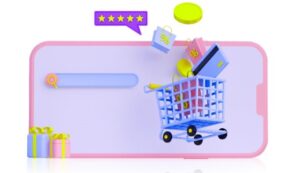

Product Design Tips for E-commerce Success: From Idea to Listing
In the world of e-commerce, product design is a vital component that can make or break your success. From conceptualizing an idea to creating a winning product listing, the journey involves several critical steps. This comprehensive guide provides you with essential product design tips to help your e-commerce venture thrive. Whether you’re a budding entrepreneur or an experienced online seller, these strategies will guide you from the inception of an idea to a successful product listing.
The Significance of Effective Product Design
Effective product design can be a game-changer for your e-commerce business. Here’s why it’s essential:
- Customer Appeal: Well-designed products are more likely to attract and engage potential customers.
- Differentiation: A unique design sets you apart from competitors, reducing price-based competition.
- Brand Identity: Product design plays a significant role in building your brand’s identity and recognition.
- Conversion Boost: Attractive designs can lead to higher conversion rates and increased sales.
- Customer Satisfaction: Products that meet or exceed customer expectations lead to positive reviews and repeat business.
GET EXCLUSIVE ACCESS TO OUR EXPERTS THIRD PARTY PLATFORM SELLERS' TIPS AND ADVICE:
- Get AHEAD of the Competition.
- FREE Membership to Sarah’s Weekly Insiders secrets.
- FREE tailored resources and gifts.
- PLUS qualify to receive personal email support.

* We respect your privacy. We will not spam you.
Product Design Tips for E-commerce Success
Let’s explore the strategies and steps for effective product design in the context of e-commerce:
1. Idea Generation:
Begin by brainstorming product ideas. Look for gaps in the market, customer needs, and trends in your niche. Be creative and open to inspiration from various sources.
2. Market Research:
Conduct thorough market research to validate your product idea. Identify your target audience, their preferences, and your competitors. Use tools like Google Trends and Amazon Best Sellers to gather insights.
3. Prototype and Sketch:
Create rough sketches or prototypes of your product design. Visualizing your idea can help you refine it and communicate it to potential manufacturers or designers.
4. Design Software:
Utilize design software like Adobe Illustrator or Canva to create detailed product designs. These tools offer professional-grade features for creating eye-catching visuals.
5. Materials and Sourcing:
Select the materials for your product and identify reliable suppliers or manufacturers. Ensure that your chosen materials align with your design and budget.
6. Test and Iterate:
Build a prototype or sample of your product and test it extensively. Gather feedback from potential customers and make improvements as necessary.
7. Brand Alignment:
Ensure that your product design aligns with your brand’s identity, values, and style. Consistency in design strengthens brand recognition.
8. User Experience:
Prioritize the user experience in your design. Consider how easy it is for customers to use, assemble, and maintain the product.
9. Packaging Design:
Create a visually appealing and functional packaging design that enhances the overall presentation of your product.
10. Product Photography:
Invest in high-quality product photography to showcase your design accurately in product listings.
11. SEO-Friendly Descriptions:
Craft product descriptions that incorporate relevant keywords and highlight the unique aspects of your design.
12. Competitive Pricing:
Determine the right pricing strategy that takes into account production costs, competitors’ prices, and your desired profit margins.
13. A/B Testing:
Experiment with different product variations, such as color or size options, and use A/B testing to determine which resonates best with your audience.
14. Launch and Promotion:
Strategically launch your product with a strong marketing campaign that leverages social media, email marketing, and paid advertising.
15. Customer Feedback:
Encourage customer feedback and reviews to gather insights and continually improve your product design.
16. Product Updates:
Stay open to product updates and improvements based on market changes and customer feedback.
17. Intellectual Property:
Protect your design by understanding intellectual property laws and considering patents or trademarks.
18. Sustainability:
Explore eco-friendly design options, as sustainability is increasingly important to consumers.
19. Legal Compliance:
Ensure your product design complies with all applicable laws and regulations, including safety standards.
20. Scaling Your Business:
As your product design succeeds, explore opportunities to scale your e-commerce business by expanding your product line or entering new markets.
Conclusion: Elevate Your E-commerce Venture with Great Product Design
In the competitive world of e-commerce, effective product design can set you on the path to success. By following these product design tips, you can take your idea from conception to a successful product listing that captures the attention of your target audience. Remember that product design is an ongoing process that requires adaptability and a commitment to delivering exceptional experiences to your customers. As you incorporate these strategies into your e-commerce journey, you’ll be better equipped to create innovative, appealing, and market-ready products that elevate your business and set you on the path to e-commerce success.
MORE LIKE THIS...
Bringing you the latest information, ideas, products and services for your E-commerce business.
Copyright 2024 E-Market Pulse
Contact Us
We may receive compensation from partners listed through affiliate partnerships, at no cost to you. This doesn’t influence our ratings, and the opinions are our own
Subscribe to our Newsletter
Get updates on products and services specially targeted to help you succeed.
